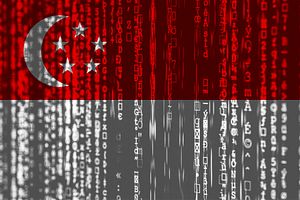Last week, Singapore announced plans to move forward with the formation of a new integrated military cyber command. Though the announcement came as no surprise, it nonetheless spotlighted the country’s continued emphasis on the cyber realm within its broader defense policy.
As I have observed previously in these pages, Singapore has long been paying keen attention to developments in the cyber domain as a developed, highly networked country that relies on its reputation for security and stability to serve as a hub for businesses and talent. The Singapore government itself has experienced breaches over the past few years, such as a string of publicized attacks that targeted government agencies and government-linked institutions, including the defense ministry and health system.
In response, Singapore has been undertaking a series of initiatives to boost its cybersecurity capabilities over the past few years. This includes creating new institutions, expediting training for cybersecurity personnel, collaborating more with the private sector and other regional actors, and elevating the importance of the digital domain in its wider military thinking.
Last week, Singapore’s cyber plans were in the headlines again with remarks delivered by Singapore’s defense minister Ng Eng Hen in parliament. The remarks were part of an outline of Singapore’s defense priorities that was provided at the defense ministry Committee of Supply (COS) debate in parliament.
The remarks at the COS debate in parliament touched on a series of areas, including strengthening defense relationships, enhancing capabilities, training safety, and medical support, as well as promoting environmental sustainability. Part of this included the restructuring of the Singapore Armed Forces (SAF) amid changing politics to better respond to security threats, including terrorism, cybersecurity, and maritime challenges.
Of particular note were efforts to create an integrated cyber command to detect potential cyberattacks and defend Singapore. Per a statement placed on the Singapore defense ministry (MINDEF) website, a high-level committee, led by the Permanent Secretary (Defense Development) and Chief of Defense Force (CDF), “will guide restricting efforts to create an integrated Cyber Command to defend our digital borders, especially against foreign cyber actors.”
Few additional specifics were provided regarding this integrated SAF Cyber Command. But the statement noted that the SAF Cyber Command “will provide threat assessments and early warning of cyberattacks, and respond accordingly,” and that the new restructuring would better enable MINDEF and SAF to achieve its mission. Following the restructuring, the CDF would continue to be in charge of mission outcomes, and the Chief Command, Controls, Communications, Computers, and Intelligence (C4I) will be the pinnacle position holding accountability with a direct report to the CDF.
To be sure, it is still early days, and it is far from clear as of now how the SAF cyber command idea will actually translate into reality. In his remarks, Ng himself admitted that the process of getting to a cyber command could take “some years” to complete, and said that more changes could be necessary over time because the cyber domain is more difficult to plan and execute than air, land, and sea. Nonetheless, given the seriousness of the cyber challenge in the region as well as Singapore’s important role as an actor in helping manage it, the country’s response will continue to be important to watch in the coming years.
































